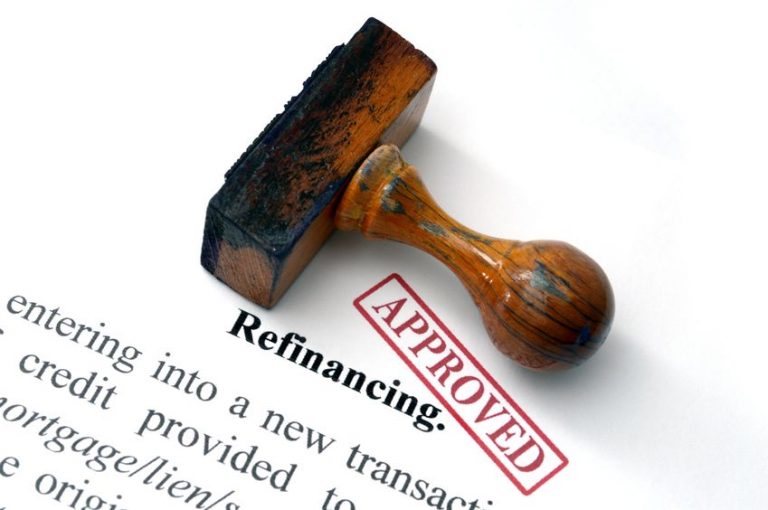Things to Consider Before You Refinance Your Mortgage
June 8, 2024

If you’ve paid attention to the news in the last year or so, you’ve probably read a decent amount about mortgage refinance.
Should You Refinance Your Mortgage?
8 million homeowners left cash on the table and weekly refinance rates were up 314 percent. Even if you had no plans to refinance your mortgage before, you might have begun to wonder if doing so would save you cash. You’re in the right place if you’re ever curious. You are going to learn:
- What loans for mortgage refinancing and how do they operate?
- When it makes sense for a mortgage to be refinanced.
- How to really go through your home refinancing.
What Are Loans Refinanced and How Do They Work?
A mortgage refinances loan is a form of a mortgage loan. The original mortgage you took out to pay for your home is replaced by that. To pay off the initial loan, you take out the refinancing loan and make mortgage payments to the lender who created the refinancing mortgage.
Homeowners frequently take on refinancing loans when they want to rework the financial terms of their mortgage, as the name of the loan suggests, often so that they can save money in some capacity.
For homeowners, it’s common to refinance in order to:
- Lower their interest rate, ensuring that over the duration of the loan, they can pay less interest.
- Even though it means paying more interest over the life of the loan, reduce their monthly payments.
- Utilizing some of the equity in their home that they have built up. This is called a “cash-out refinance.”
- Their mortgage insurance would be eliminated.
- Pay off the loan more quickly, also meaning that they will have higher monthly payments but will pay less interest over the life of the loan.
- Achieve greater cost flexibility by converting to a fixed-rate mortgage from an adjustable-rate mortgage.
And because refinancing loans are a form of mortgage loan themselves, homeowners need to go through much the same process to get them as they do for an initial mortgage. Notably, this means that you have to apply for the loan yourself and incur certain relevant expenses (including a home appraisal and closing fees).
Because of those two variables, refinancing a mortgage is not right for all. Let’s take a look at refinancing, which usually makes financial sense, to get an idea of whether refinancing your mortgage will boost your financial situation.
You have to pay for a home valuation and closing fees when you refinance your mortgage.
When Does It Make Sense to Refinance Your Mortgage?
\Usually, the purpose of refinancing a mortgage loan is to save money in some way, either on your monthly payments or on your loan’s total cost.
There are a few common triggers for individual homeowners that mean that it’s a good time to study if it makes financial sense to take on a refinancing loan, including these:
- Interest rates dip below what you pay at the moment. That’s what happened in 2019, when, due to the refinance boom, you undoubtedly saw hundreds of titles on how much homeowners were saving.
- Your credit is improving. When it does, you may apply for a loan with conditions that are more favorable than the one you currently have. It can make sense to refinance if this occurs, even if interest rates haven’t changed much.
- You have built enough equity to give up your mortgage insurance. You will be able to remove your mortgage insurance until you have 20 percent equity in your house. Refinancing, doing so might decrease your monthly payments.
These triggering events, however, are only part of the equation. Since refinancing a mortgage is not free (remember that it normally costs between three and six percent of the principal of the loan), before jumping headlong into a refinance loan, it’s necessary to run the numbers.
As you assess the potential benefits a refinance might offer you, there are a few numbers you may want to consider:
- Break-even point: This measure weighs the amount you’re spending to get your refinanced mortgage against the money you’re going to save at your new interest rate. Depending on what you save on monthly installments, how long would it take you to repay what you paid on the new loan? In general, the sooner you reach the point of break-even, the better. If the break-even point is too far in the future, you could be better served elsewhere by the money you will spend on getting the new mortgage—say, collecting interest on an investment account.
- Total savings: This calculation represents the total amount that you can save over the duration of your refinanced loan. This could be a useful metric to use if you have the ability to substantially decrease your interest rate.
- Monthly savings: Your financial conditions may have changed and your main purpose is to lower your monthly expenses, even though it means paying more interest over the term of your loan. In that scenario, with your new loan terms, you may want to think about how much money you’d save per month.

Notice that we have not given any definitive advice about when a mortgage can be refinanced by a homeowner. That’s because the situation of everybody is distinct and can be influenced by a variety of variables, including:
- A credit score of yours.
- The initial interest rate and the rate applicable to you at the moment.
- The equity you have in your house.
- Larger financial policy and priorities.
It’s also likely that refinancing your mortgage will end up costing you more than the initial loan because of this. We just can’t stress enough how important it is for your unique case to run the numbers.
How to Refinance Your Mortgage?
It’s time to start the actual process if you have run the numbers and decided that refinancing your mortgage makes financial sense. Second, assess which of the following is your refinancing objective:
- Pay less interest over the life of the loan: for this, without expanding the existing payoff schedule, you’ll probably want to reduce your interest rates.
- Lower monthly payments: You would like lower interest rates and a longer payout schedule for this: (for example, by refinancing into a new 30-year mortgage).
- Tap into equity: You’ll want a “cash-out” refinance for this.
- Remove mortgage insurance: You’re going to have to have at least 20% equity in your home for this.
- Shorten the duration of the loan: you may want to refinance this into a loan with a shorter time horizon than the current schedule of payoffs.
- Get a more secure loan: you’ll want to refinance it into a fixed-rate loan for that.
Do some online research once you have established your target to find out what interest rates are currently. Then do some ballpark calculations: to see what kind of savings you can expect, plug your numbers into an online refinance calculator.
It’s time to get in touch with lenders if the initial numbers look good. Comparing deals from three to five lenders is best to ensure you get the best price. As you are doing this:
- To minimize the effect on your credit score, apply within a two-week timeframe.
- Ask their rates for the type of loan you want (e.g., fixed-rate, 15-year, etc.).
With loan figures, they’ll get back to you (including closing costs). In order to run your refinance calculations again, use these numbers.
It’s time to go with the lender who gave you the most enticing offer and ask to ‘lock’ your interest rate if everything still looks fine. For a fixed number of days, Locking guarantees the rate, during which time you and your lender will attempt to close the loan.
This part of the process should remind you to get your original mortgage because it’s about the same unless you’re not going to move into a new house when you’re done. That’s probably a huge relief at this stage!
Final Thoughts
The method can be daunting if you’ve never refinanced a mortgage. It’s a big financial decision and you may feel like you’re struggling to make it on your own.
However, in fact, your lender should be motivated to assist you. Lenders make money from mortgage refinancing, so helping homeowners decide if refinancing makes sense is in their best interest.
And don’t be shocked if your lender doesn’t proactively reach out to you about the options open to you for refinancing. While most banks and lenders have a lot of customer data, few have efficient systems to monitor efficiently when different financial products might help those customers.
The bottom line: for some homeowners, refinancing a mortgage will lead to considerable savings. If you’re curious about whether you can refinance, to get an initial understanding of how the numbers add up for you, play around with some online calculators.
Bear in mind, though: in any case, refinancing a mortgage doesn’t make sense. To ensure that you end up on a loan that fits your long-term financial objectives, it is important to do your homework.
For more information about Mortgage Refinance
